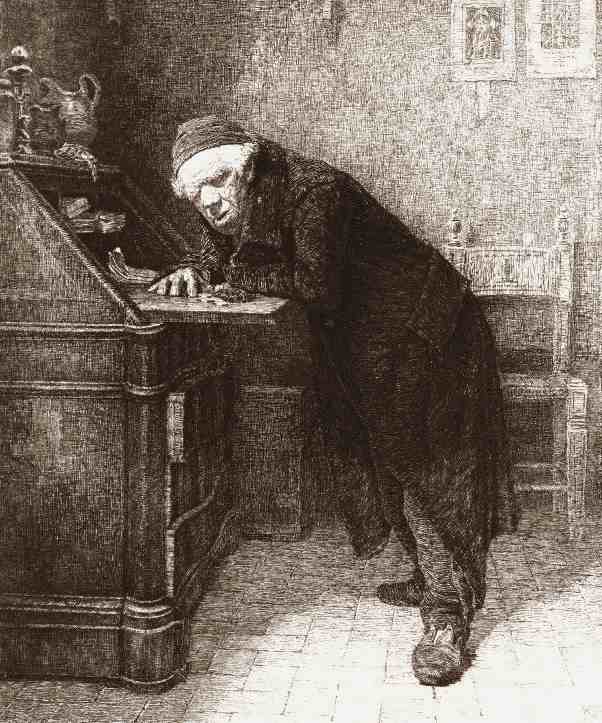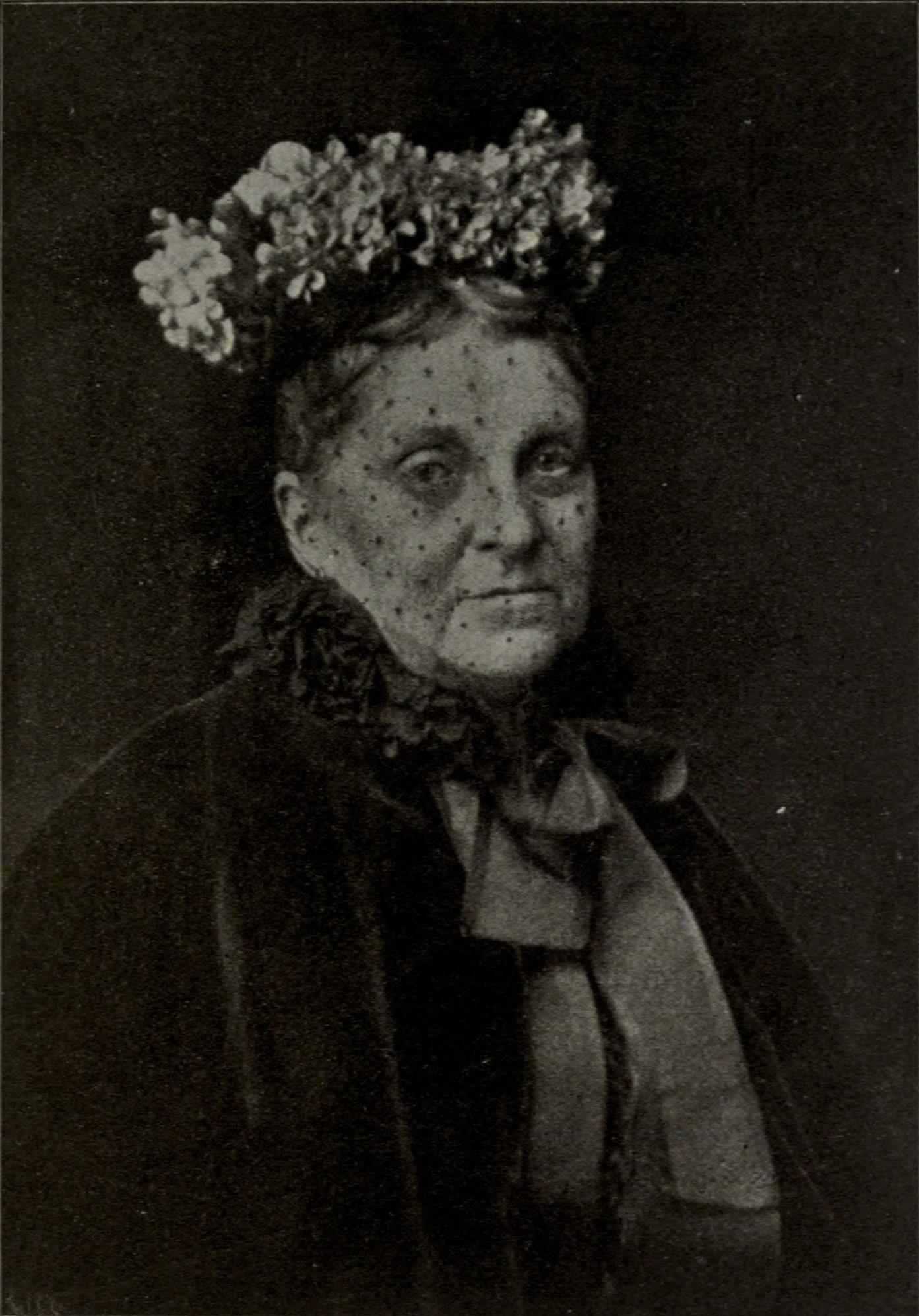|
Misers
A miser is a person who is reluctant to spend, sometimes to the point of forgoing even basic comforts and some necessities, in order to hoard money or other possessions. Although the word is sometimes used loosely to characterise anyone who is mean with their money, if such behaviour is not accompanied by taking delight in what is saved, it is not properly miserly. Misers as a type have been a perennial object of popular fascination and a fruitful source for writers and artists in many cultures. Accounting for misers One attempt to account for miserly behaviour was Sigmund Freud's theory of anal retentiveness, attributing the development of miserly behaviour to toilet training in childhood, although this explanation is not accepted by modern evidence-based psychology. In the Christian West the attitude to those whose interest centred on gathering money has been coloured by the teachings of the Church. From its point of view, both the miser and the usurer were guilty of the ... [...More Info...] [...Related Items...] OR: [Wikipedia] [Google] [Baidu] |
Hetty Green
Hetty Green (November 21, 1834 – July 3, 1916), nicknamed the Witch of Wall Street, was an American businesswoman and financier known as "the richest woman in America" during the Gilded Age. She was named by the '' Guinness Book of World Records'' the "greatest miser". Despite her wealth, she was a renowned cheapskate, refusing to buy expensive clothes or pay for hot water, and wearing a single dress that was only replaced when it was worn out. She amassed a fortune as a financier at a time when nearly all major financiers were men. After her death, ''The New York Times'' wrote, "It was the fact that Mrs. Green was a woman that made her career the subject of endless curiosity, comment and astonishment." Birth and early years Henrietta ("Hetty") Howland Robinson was born in 1834 in New Bedford, Massachusetts, the daughter of Edward Mott Robinson and Abby Howland, the richest whaling family in the city. Her family members were Quakers who owned a large whaling fleet and also pr ... [...More Info...] [...Related Items...] OR: [Wikipedia] [Google] [Baidu] |
John Elwes (politician)
John Elwes é Meggot or Meggott MP (7 April 1714 – 26 November 1789) was a member of parliament (MP) in Great Britain for Berkshire (1772–1784) and an eccentric miser, suggested to be an inspiration for the character of Ebenezer Scrooge in Charles Dickens' '' A Christmas Carol''. Dickens made reference to Elwes some years later in his last completed novel, '' Our Mutual Friend''. Elwes was also believed to inspire William Harrison Ainsworth to create the character of John Scarfe in his novel '' The Miser's Daughter''. Family background and early life Elwes (birth name "Meggot") was born on 7 April 1714 into a respectable English family. His father, Robert Meggot, was a respected Southwark brewer and his grandfather was Sir George Meggot, MP for that same borough. His mother, Amy (''née'' Elwes), was the granddaughter of Sir Gervase Elwes, 1st Baronet and MP for Suffolk (see Elwes baronets). His maternal grandmother, Lady Isabella Hervey (of the Hervey family), happened ... [...More Info...] [...Related Items...] OR: [Wikipedia] [Google] [Baidu] |
Jemmy Wood
James (Jemmy) Wood (7 October 1756 – 20 April 1836) was the owner of the Gloucester Old Bank who became nationally known as "The Gloucester Miser". His wealth of around £900,000 was stated at the time to have made him "the richest commoner in His Majesty's dominions". Early life Wood was born on 7 October 1756James Wood's Time Line. corseandstaunton.org.uk, 2005. Retrieved 1 July 2011. in Westgate Street, Gloucester and baptised at St Michael's Church on 19 October 1756. He was the third child and only son of Richard and Elizabeth Wood and he attended either [...More Info...] [...Related Items...] OR: [Wikipedia] [Google] [Baidu] |
Piccinni L'Avaro
Piccinni is an Italian surname. Notable people with the surname include: *Niccolò Piccinni (1728–1800), Italian composer **Teatro Piccinni, Italian theater in Bari, Apulia *Louis Alexandre Piccinni (1779–1850), Italian-French composer, grandson of Niccolò Notable people with the surname Piccini include: *Augusto Piccini (1854-1905), Italian chemist *Isabella Piccini (1664–1732), Italian nun and artist *Achille Piccini (1911–1995), Italian football player *Cristiano Piccini (born 1992), Italian footballer right back with Spanish club Valencia *Teresa Piccini, Mexican ten-pin bowler who competed at the 2006 AMF World Cup *David Piccini, Canadian politician elected to the Legislative Assembly of Ontario in 2018 See also *Picinae#Systematics, Picini, tribe of American woodpeckers of the subfamily Picinae * {{surname Italian-language surnames ... [...More Info...] [...Related Items...] OR: [Wikipedia] [Google] [Baidu] |
Cooper Dancer
Cooper, Cooper's, Coopers and similar may refer to: * Cooper (profession), a maker of wooden casks and other staved vessels Arts and entertainment * Cooper (producers), alias of Dutch producers Klubbheads * Cooper (video game character), in ''Dino Crisis'' * "Cooper", a song by Roxette from the 1999 album ''Have a Nice Day'' * The Cooper Brothers, Canadian southern rock band Businesses and organisations * Cooper (company), an American user experience design and business strategy consulting firm * Cooper Canada, defunct sporting goods manufacturer * Cooper Car Company, British car company **Mini Cooper, the name of several cars * Cooper Chemical Company, an American chemical manufacturer * The Cooper Companies, an American medical device company * Cooper Enterprises, Canadian boat builder ** Cooper 353, Canadian sailboat ** Cooper 416, Canadian sailboat * Cooper Firearms of Montana, an American firearms manufacturer * Cooper Foundation, an American charitable and educati ... [...More Info...] [...Related Items...] OR: [Wikipedia] [Google] [Baidu] |
Parkinson's Disease
Parkinson's disease (PD), or simply Parkinson's, is a long-term degenerative disorder of the central nervous system that mainly affects the motor system. The symptoms usually emerge slowly, and as the disease worsens, non-motor symptoms become more common. The most obvious early symptoms are tremor, rigidity, slowness of movement, and difficulty with walking. Cognitive and behavioral problems may also occur with depression, anxiety, and apathy occurring in many people with PD. Parkinson's disease dementia becomes common in the advanced stages of the disease. Those with Parkinson's can also have problems with their sleep and sensory systems. The motor symptoms of the disease result from the death of cells in the substantia nigra, a region of the midbrain, leading to a dopamine deficit. The cause of this cell death is poorly understood, but involves the build-up of misfolded proteins into Lewy bodies in the neurons. Collectively, the main motor symptoms are also k ... [...More Info...] [...Related Items...] OR: [Wikipedia] [Google] [Baidu] |
Intestate
Intestacy is the condition of the estate of a person who dies without having in force a valid will or other binding declaration. Alternatively this may also apply where a will or declaration has been made, but only applies to part of the estate; the remaining estate forms the "intestate estate". Intestacy law, also referred to as the law of descent and distribution, refers to the body of law (statutory and case law) that determines who is entitled to the property from the estate under the rules of inheritance. History and the common law Intestacy has a limited application in those jurisdictions that follow civil law or Roman law because the concept of a will is itself less important; the doctrine of forced heirship automatically gives a deceased person's next-of-kin title to a large part (forced estate) of the estate's property by operation of law, beyond the power of the deceased person to defeat or exceed by testamentary gift. A forced share (or legitime) can often only ... [...More Info...] [...Related Items...] OR: [Wikipedia] [Google] [Baidu] |
Edinburgh
Edinburgh ( ; gd, Dùn Èideann ) is the capital city of Scotland and one of its 32 council areas. Historically part of the county of Midlothian (interchangeably Edinburghshire before 1921), it is located in Lothian on the southern shore of the Firth of Forth. Edinburgh is Scotland's second-most populous city, after Glasgow, and the seventh-most populous city in the United Kingdom. Recognised as the capital of Scotland since at least the 15th century, Edinburgh is the seat of the Scottish Government, the Scottish Parliament and the highest courts in Scotland. The city's Palace of Holyroodhouse is the official residence of the British monarchy in Scotland. The city has long been a centre of education, particularly in the fields of medicine, Scottish law, literature, philosophy, the sciences, and engineering. It is the second-largest financial centre in the United Kingdom, and the city's historical and cultural attractions have made it the UK's second-most visited tourist d ... [...More Info...] [...Related Items...] OR: [Wikipedia] [Google] [Baidu] |
Compulsive Hoarding
Compulsive behavior is defined as performing an action persistently and repetitively. Compulsive behaviors could be an attempt to make obsessions go away. The act is usually a small, restricted and repetitive behavior, yet not disturbing in a pathological way. Compulsive behaviors are a need to reduce apprehension caused by internal feelings a person wants to abstain from or control. A major cause of compulsive behavior is said to be obsessive–compulsive disorder (OCD).(1996). Obsessive Compulsive Disorder: Decade of the Brain. National Institutes of Health. "The main idea of compulsive behavior is that the likely excessive activity is not connected to the purpose to which it appears directed." There are many different types of compulsive behaviors including shopping, hoarding, eating, gambling, trichotillomania and picking skin, itching, checking, counting, washing, sex, and more. Also, there are cultural examples of compulsive behavior. Disorders in which it is seen ... [...More Info...] [...Related Items...] OR: [Wikipedia] [Google] [Baidu] |
Stirling
Stirling (; sco, Stirlin; gd, Sruighlea ) is a city in central Scotland, northeast of Glasgow and north-west of Edinburgh. The market town, surrounded by rich farmland, grew up connecting the royal citadel, the medieval old town with its merchants and tradesmen, the Old Bridge and the port. Located on the River Forth, Stirling is the administrative centre for the Stirling council area, and is traditionally the county town of Stirlingshire. Proverbially it is the strategically important "Gateway to the Highlands". It has been said that "Stirling, like a huge brooch clasps Highlands and Lowlands together". Similarly "he who holds Stirling, holds Scotland" is often quoted. Stirling's key position as the lowest bridging point of the River Forth before it broadens towards the Firth of Forth made it a focal point for travel north or south. When Stirling was temporarily under Anglo-Saxon sway, according to a 9th-century legend, it was attacked by Danish invaders. The sound ... [...More Info...] [...Related Items...] OR: [Wikipedia] [Google] [Baidu] |
Broadside (printing)
A broadside is a large sheet of paper printed on one side only. Historically in Europe, broadsides were used as posters, announcing events or proclamations, giving political views, commentary in the form of ballads, or simply advertisements. In Japan, Chromoxylographic broadsheets featuring artistic prints were common. Description and history The historical type of broadsides, designed to be plastered onto walls as a form of street literature, were ephemera, i.e., temporary documents created for a specific purpose and intended to be thrown away. They were one of the most common forms of printed material between the sixteenth and nineteenth centuries. They were often advertisements, but could also be used for news information or proclamations. Broadsides were a very popular medium for printing topical ballads starting in the 16th century. Broadside ballads were usually printed on the cheapest type of paper available. Initially, this was cloth paper, but later it became common ... [...More Info...] [...Related Items...] OR: [Wikipedia] [Google] [Baidu] |







